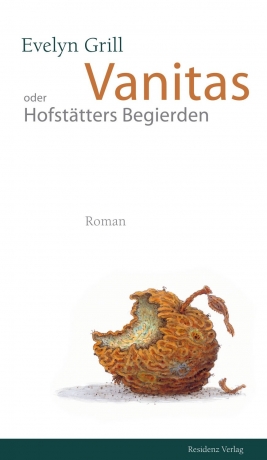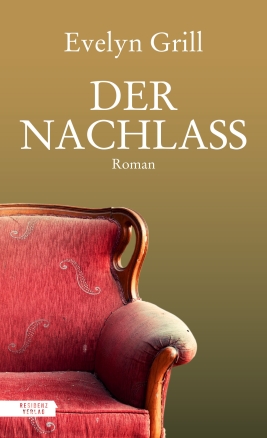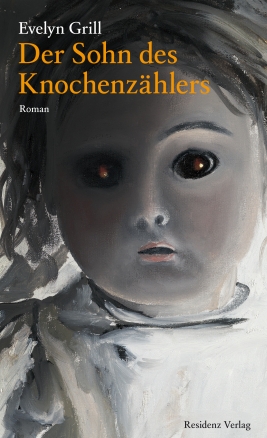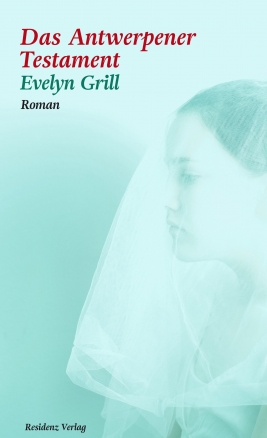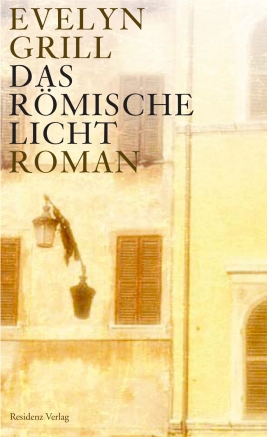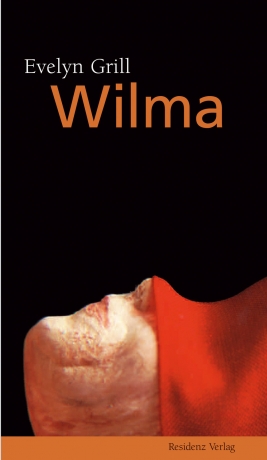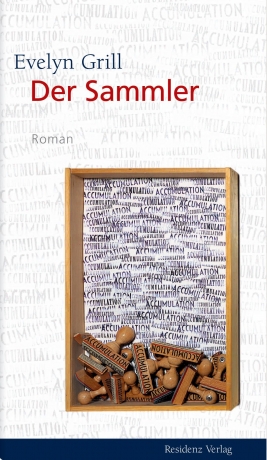Evelyn Grill entwirft in lapidarem Ton und drastischen Bildern souverän die Szenenfolge eines Lebens, das die Wirklichkeit nur in künstlerischer Bearbeitung gelten lässt. Ein erfrischend kühnes Buch.
Spiegel
Der Blick auf eine monströse Ehe in den besten Kreisen: Wir folgen Evelyn Grill gerne in dieses Labyrinth aus Kunst, Dekadenz und geheimen Lüsten.
Ulrich Weinzierl, Die Welt
Evelyn Grill ist von einer wüsten Fantasie umgetrieben, die sie tollkühn immer drastischere Wirklichkeitsbilder finden lässt. Diese Autorin soll gepriesen sein, und viele Leser mögen ihr verfallen.
Anton Thuswaldner, Salzburger Nachrichten
„Vanitas“ ist ein gräßlich-amüsantes, kunstvoll komponiertes Buch …
Daniela Strigl, Literatur und Kritik
Kunst und falsche Pracht, Schönheitssinn und Prunksucht, ästhetisches Vergnügen und Eitelkeit, interesseloses Wohlgefallen und Wollust sind die Pole einer spätbarocken Weltanschauung und die Stoffe ihres Welttheaters, auf dem aber – ein besonders aparter Kontrast – nur moderne Figuren auftreten. Evelyn Grill zitiert viel Schönheit herbei und setzt dieser viel Schmutz entgegen …
Hannelore Schlaffer, FAZ
Evelyn Grill schont ihre LeserInnen nicht. Wer sich von ihr eine Geschichte erzählen lässt, muss damit rechnen, mit Anstößigem und Abstoßendem konfrontiert zu werden...Dass man den Büchern dieser Autorin dennoch bis zur letzten Seite mit großer Konzentration folgt, liegt vor allem an Grills Erzählkunst. Sie versteht es, mit ihrer genauen, unsentimentalen Sprache, dem Abstoßenden einerseits Faszination abzugewinnen und andererseits die finsteren Szenarien mit Humor zu durchbrechen.
Irene Prugger, Wiener Zeitung
Evelyn Grill hat für ihr verrückt-absurdes Geschehen die entsprechenden literarischen Mittel gefunden und ihren Erzähler mit quasi hofstätterscher Weltsicht ausgestattet. Der Wahnsinn und das Absurde werden erzählerisch so klar herausentwickelt, dass man sich in der zunehmend surrealen Wirklichkeit lesend einzurichten beginnt. – Für literarisch Interessierte sehr zu empfehlen.
Reinhard Ehgartner, Bibliotheksnachrichten
Grill taucht ein in die Perversionen einer Gesellschaft, die noch immer untergeht. „Vanitas“ ist ein österreichisches, ein amoralisches Buch. Es führt kommentarlos böse ins Dunkel hinter all dem Ästhetizismus und Feinsinn.
Tiroler Tageszeitung
Mit kräftigen Bildern schildert sie das Leben eines Ehepaares, dem Repräsentation über alles geht und das nur dafür lebt, die eigenen Eitelkeiten zu befriedigen. Grill beschreibt dieses Paar sehr eindringlich und mit drastischen Bildern, dabei zeigt sie aber auch kräftige Ironie und Witz.
Buchmedia Magazin
...man kann gar nicht anders, als die präzis realistische Beschreibung der Autorin zu bewundern, die beängstigende Aufmerksamkeit, mit der sie noch die gruseligsten Details bis in letzte Hautfalten und medizinische Gerätschaften ausformuliert.
Kieler Nachrichten
Es ist eine herrschaftliche, reiche, dekadente und perverse Gesellschaft, die Evelyn Grill in ihrem neuen Roman „Vanitas oder Hofstätters Begierden“ entwirft. (...) Seinen Reiz bezieht er aus dem raffinierten Kontrast zwischen höchstem ästhetischen Kunstverstand und tiefsten menschlichen Abgründen. (...) Wie ein altmeisterliches Tableau entwirft Grill die bizarre Handlung als lebendes Bild, als eine Groteske. Und enthält sich dabei wohltuend jeder moralischen Wertung.
Anita Pollak, Kurier
Ein Roman als schonungslos-gekonnte Inszenierung einer großbürgerlichen, repräsentativen Scheinwelt, schnörkellos erzählt und kunstvoll arrangiert. Eine wahrhaft frostig-schauerliche Kaltnadelprosastudie.
Georg Pichler, Die Presse
Die seit 1986 in Deutschland lebende Autorin schafft es großartig, ein „Paralleluniversum“ zu entwerfen, dessen Bewohner Schönheit, Ästhetik und Feinsinnigkeit proklamieren, jedoch nur der eigenen Verrohung zusehen können. (...) Ein unmoralisches Buch. Ein gutes Buch.
Wolfgang Huber-Lang, Neues Volksblatt
Wie man es von ihr gewohnt ist, schont Evelyn Grill den Leser nicht. Sie mutet ihm hier allerlei Szenen zu, in denen Erotik und Verfall eine abstoßende Allianz eingehen. Ihr bewundernswert kalt sezierender Blick nimmt den toten Körper nicht aus. Mit gemeißelten Sätzen steuert der makellos konstruierte Roman auf die finale Katastrophe zu. Sein Ton schmiegt sich dem Habitus seines Helden konsequent an: Er ist absolut indifferent.
Bettina Schulte, Badische Zeitung
Der Text hat Schönklang, stilistischen Charme, weckt zuweilen die Assoziationen zu schwebender tänzerischer Anmut. (...) Eine starke Rückkehr des Residenz-Verlags auf die Belletristik-Szene Österreichs.
Reinold Tauber, Oberösterreichische Nachrichten
Grill zeichnet ein knallhartes und schnörkelloses Psychogramm eines Menschen, der komplett außerhalb jeder konventionellen ethischen und moralischen Normen agiert. Konsequent verzichtet sie dabei auf jegliche Moralisierung. (…) Unbeeindruckt bleibt man davon nicht.
Brigitte Kompatscher, Neue Vorarlberger Tageszeitung
